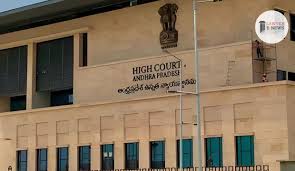-
by Admin
15 February 2026 5:35 AM



In a significant ruling, the Andhra Pradesh High Court, presided over by the Hon’ble Dr. Justice K. Manmadha Rao, dismissed a revision petition challenging the decision of a lower court in a property dispute. The lower court had earlier refused to implead petitioners claiming rights over a disputed property.
The case, revolving around C.R.P.No.1515 of 2023, witnessed petitioners seeking to be impleaded as defendants in O.S.No.216 of 2010, asserting their right over the plaint schedule property. The lower court had dismissed their application, reasoning that the petition was filed to unnecessarily drag on the proceedings and lacked a direct nexus to the main suit.
Justice Rao, in his ruling, emphasized, “the application has been filed belated, though the petitioners are relation to the plaintiff. Therefore they have knowledge about the pendency of the suit. But they have not taken steps at initial stage to implead them as proper and necessary parties to the suit.” This observation highlighted the court’s stance on the timeliness and relevance of the impleadment application.
The court further noted the absence of substantial evidence from the petitioners substantiating their claim over the property. Drawing on legal precedents, the ruling distinguished between necessary and proper parties in a suit, underscoring the importance of direct or legal interest in the matter over mere commercial interest.
Responding to the court’s decision, Mr. V.V. Satish, counsel for the petitioners, expressed disappointment, while Mr. P. Veera Reddy, representing the first respondent, welcomed the judgment, stating that it upheld the principles of justice and prevented needless prolongation of property disputes.
This decision is seen as a reinforcement of the procedural rigor expected in property litigation, with the court making it clear that parties cannot be added to suits without demonstrating a substantial and direct interest in the matter at hand. The ruling also serves as a precedent for future cases where the impleadment of parties is sought without adequate justification or evidence.
Date of Decision: 10 November, 2023
Nagarathnamma Versus Lakshmiparasad
